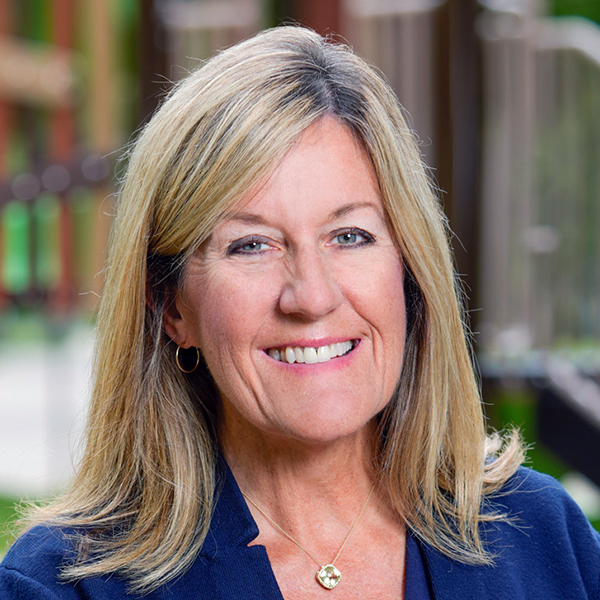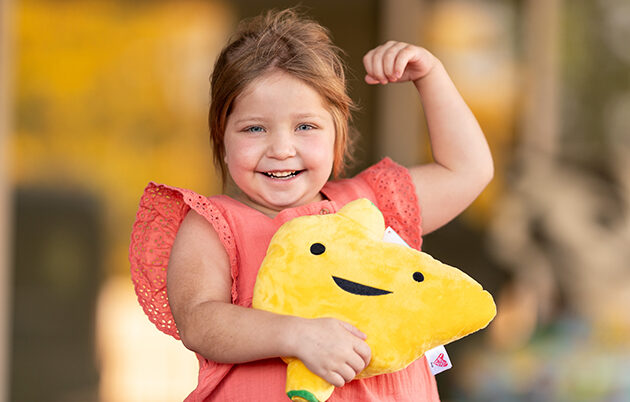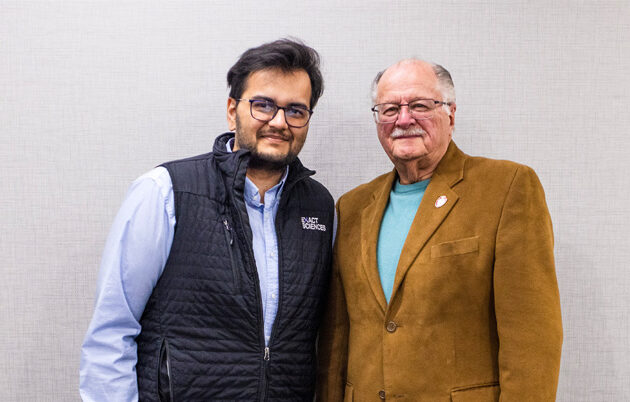For Scallon — who began a two-year term as president of the Wisconsin Medical Alumni Association (WMAA) Board of Directors on July 1, 2024 — staying active through various types of sports has been a driving force throughout her life. Even a bicycling mishap at age 18 had a “silver lining” that helped shape her future.
Recalling the accident, which occurred shortly after she graduated from high school in Madison, Wisconsin, she said, “I got pretty banged up, and my broken jaw had to be wired shut. It was difficult and painful, but it also was inspirational. The compassionate and skilled medical care I received when I was injured and scared has always stayed with me.”
That fall, she started college and later received a bachelor’s degree in zoology from the University of Wisconsin–Madison. Next, she earned a medical degree from the UW School of Medicine and Public Health (SMPH) and completed a psychiatry residency at University of Colorado–Denver and a child and adolescent psychiatry residency at UW Health.
“I knew I wanted to have a mission-driven career in a helping profession,” Scallon said. “My observations as a patient in the hospital sparked my interest in medicine.”
Scallon first worked in private practice and later became a clinical associate professor in the SMPH Department of Psychiatry’s Division of Child and Adolescent Psychiatry. There, she provided psychiatric care to children, adolescents, adults and families; taught and supervised medical students; led the SMPH consultation service to Madison public schools; facilitated the medical student elective, Healer’s Art, in which students explored issues like grief, death and dying; and served as the training director of the Child and Adolescent Psychiatry Residency Program.
Meanwhile, Scallon and her husband, Mark Redsten, raised their two children: Oliver, now an attorney in Chicago, and Genevieve, now a reporter in Milwaukee. For 20 years, their home’s front window overlooked the frequently visited playground at the kids’ grade school, Shorewood Hills Elementary.
Today, Scallon and Redsten — a fellow Badger and the longtime president and CEO of Clean Wisconsin, a statewide non-profit organization that focuses on clean water and air — live on Lake Mendota near UW–Madison. They enjoy kayaking, water skiing, spending time with friends on their pontoon boat, and walking past the beloved playground in Shorewood Hills.
In 2016, while continuing her role as an SMPH clinical associate professor but leaving her practice in Madison, Scallon moved her career 63 miles east to Rogers Behavioral Health, which offers outpatient, inpatient, and residential care for patients of all ages. Initially serving as the medical director of an adolescent-residential-care unit, she was promoted in April 2024 to the role of senior medical director of Rogers’ Oconomowoc Campus. While overseeing 16 programs, she continues to serve as an attending psychiatrist on a 24-bed unit for adolescents with mood disorders. Generally, her patients have had multiple inpatient stays elsewhere before coming to Rogers for approximately eight weeks.
“Rogers’ Oconomowoc setting is on a beautiful, wooded campus situated on a lake. We offer outdoor lake activities, games and walking paths. It is a lovely, restorative place,” Scallon said, adding that the indoor facilities are equally inviting.
“Residential care is a great model. The kids are fully immersed in skills-based therapies, including cognitive and dialectical behavioral therapy, and behavioral activation aimed at developing coping skills to deal with depression and other mood disorders,” she explained.
In describing behavioral activation, Scallon said, “It is like our grandmothers used to tell us: if we are feeling down, we should get active or do something meaningful, such as helping someone. Rather than waiting to get ‘un-depressed’ to change our behavior, we change our behavior, and our mood will follow.”
This process involves routine tasks like maintaining hygiene and keeping a schedule; valued activities such as getting exercise or doing homework; and enjoyable activities such as listening to music or creating artwork.
“Small actions can result in micro mood improvements. If you take a shower or brush your teeth, you feel better than if you don’t. Through a series of micro mood improvements, eventually you say, ‘Today was a pretty good day.’ Your mood is often the last thing to get better, but you can start to feel good about your productivity,” Scallon explained. “We incorporate these activities into plans as the teens transition home.”
Residents’ structured days at Rogers often start with mindfulness practices, schoolwork, and recreation therapy. They may work in an on-site greenhouse, experience the ropes course, and engage in activities in the community, such as playing mini golf, going bowling, exploring museums, or visiting parks or an apple orchard.


